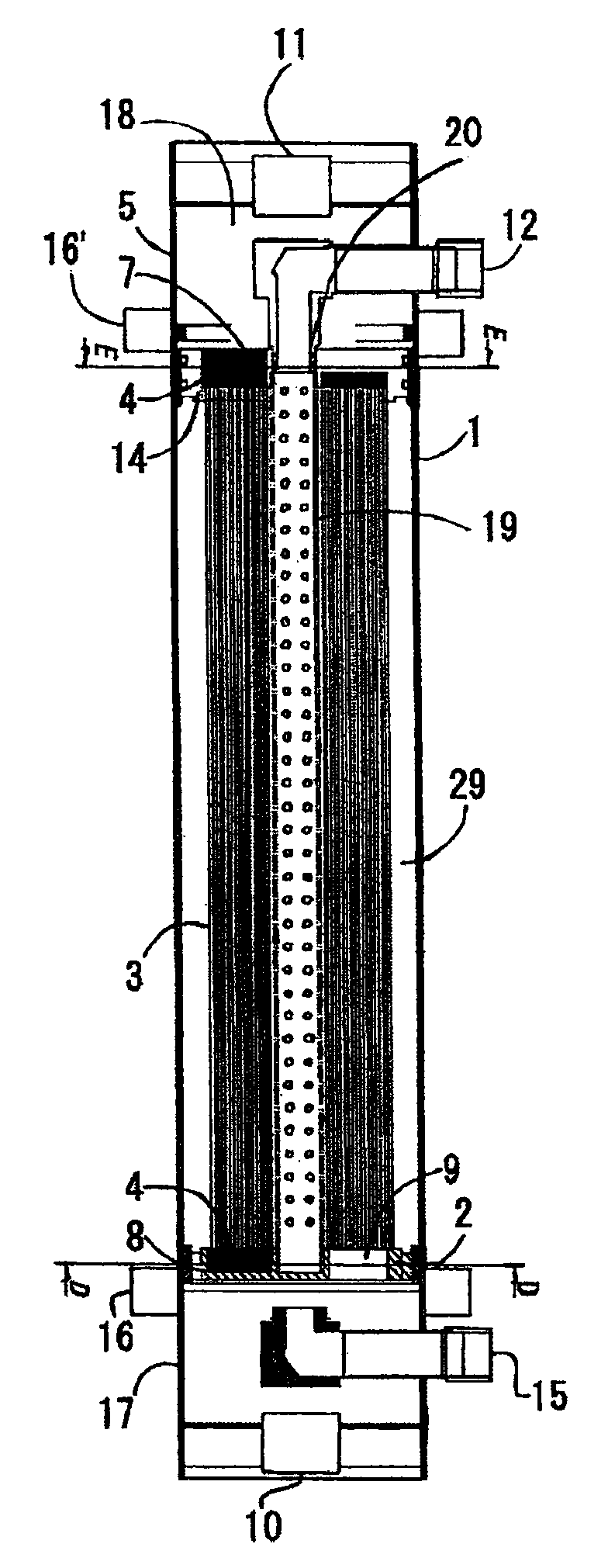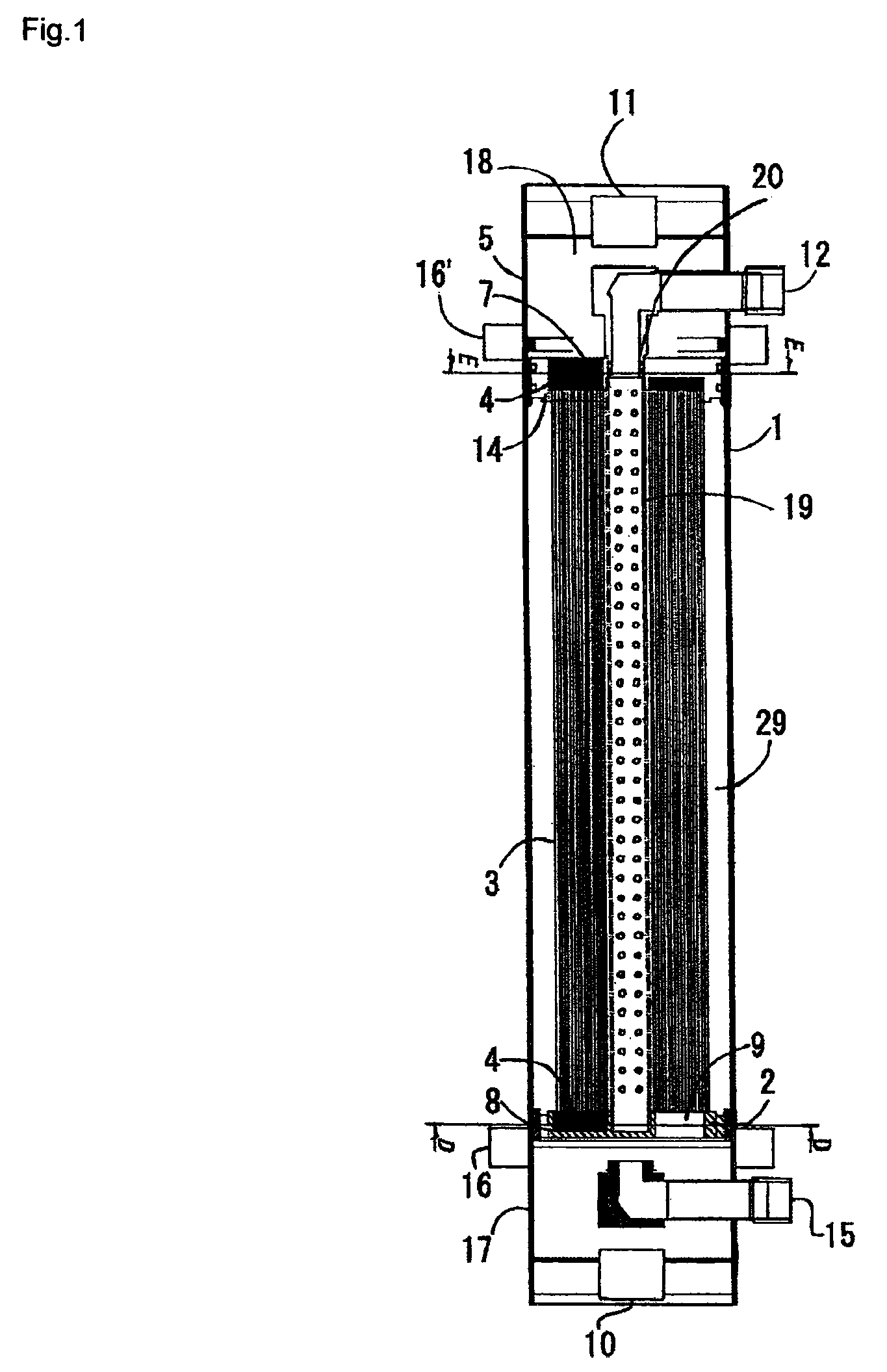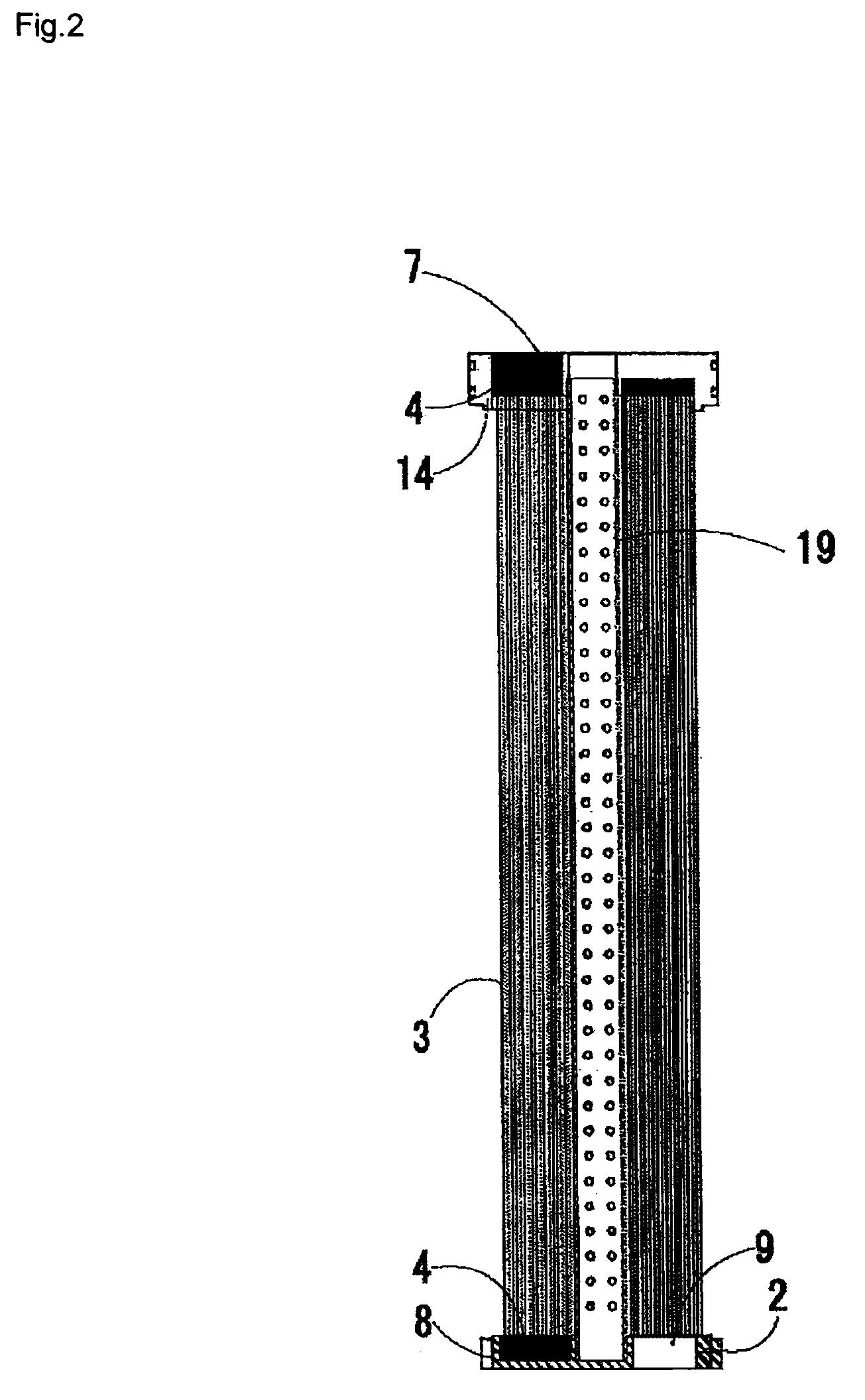Permselective membrane module and method for manufacturing the same
a technology of membrane modules and permselective membranes, which is applied in the field of manufacturing permselective membrane modules, can solve the problems of air not reaching the hollow fiber membranes near the center of the membrane bundle, the possibility of re-deposition on the membrane surface, and the inability to efficiently discharge solids, etc., to achieve excellent discharging of suspended solids, improve the production yield, durability and quality of the module, and effectively float over the membrane surface
- Summary
- Abstract
- Description
- Claims
- Application Information
AI Technical Summary
Benefits of technology
Problems solved by technology
Method used
Image
Examples
example 1
[0125]Each end of a cleaning pipe was connected with a polyvinyl-chloride lower holder or upper holder having six sections and six premolded slits. In each section was inserted three bundles of polyethersulfone hollow fiber membranes, each bundle having an outer diameter of 1200 μm, an inner diameter of 700 μm, and a molecular weight cut-off of 300,000 daltons, and consisting of 960 membranes wound with a protective net. The bundles were then fixed by injecting polyurethane resin. After curing the polyurethane resin, a portion of the resin in the upper holder was cut off, together with the hollow fiber membranes, to provide open-ended membranes, thereby yielding a permselective membrane element. The upper holder had the configuration shown in FIG. 2. The lower holder, as shown in FIG. 3, had six projections, and slits with a width of 4 mm and a length of 74 mm which were positioned between sections and arranged radially from around the center of the holder. The cleaning pipe was mad...
example 2
[0130]To a polyvinyl-chloride cylindrical vessel with an outer diameter of 145 mm and a length of 1075 mm was attached polyvinyl-chloride holders with an outer diameter of 110 mm and a thickness of 40 mm. The holders had four sections for dividing hollow fiber membranes, and had slits with a width of 4 mm and a length of 20 mm between sections. A module vessel was then assembled, using a cleaning pipe which was made of polyvinyl chloride and had an inner diameter of 25 mm, a length of 1075 mm, and four perforations 5 mm in diameter positioned circumferentially around the side surface with a pitch of 45 mm, making a total of 88 perforations. Using polyethersulfone hollow fiber ultrafiltration membranes with an outer diameter of 1200 μm, an inner diameter of 700 μm, and a molecular weight cut-off of 300,000 daltons, eight bundles each of 420 membranes were prepared and put in a polyethylene protective net. Two bundles were inserted into each of the four sections of the filtration modu...
example 3
[0133]To a polyvinyl-chloride cylindrical vessel with an outer diameter of 216 mm and a length of 1000 mm were attached polyvinyl-chloride holders with an outer diameter of 192 mm and a thickness of 40 mm. The holders had six sections for dividing hollow fiber membranes, and had slits with a width of 4 mm and a length of 50 mm between sections. A module vessel was then assembled, using a cleaning pipe which was made of polyvinyl chloride and had an inner diameter of 25 mm, a length of 1075 mm, and four perforations 5 mm in diameter positioned circumferentially around the side surface with a pitch of 30 mm, making a total of 132 perforations. Using polyethersulfone hollow fiber ultrafiltration membranes with an outer diameter of 1200 μm, an inner diameter of 700 μm, and a molecular weight cut-off of 300,000 daltons, eight bundles each having 1200 membranes were prepared and put in a polyethylene protective net. Two bundles were inserted into each of the four sections of the filtratio...
PUM
 Login to View More
Login to View More Abstract
Description
Claims
Application Information
 Login to View More
Login to View More - R&D
- Intellectual Property
- Life Sciences
- Materials
- Tech Scout
- Unparalleled Data Quality
- Higher Quality Content
- 60% Fewer Hallucinations
Browse by: Latest US Patents, China's latest patents, Technical Efficacy Thesaurus, Application Domain, Technology Topic, Popular Technical Reports.
© 2025 PatSnap. All rights reserved.Legal|Privacy policy|Modern Slavery Act Transparency Statement|Sitemap|About US| Contact US: help@patsnap.com



